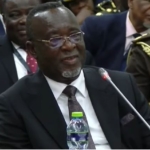
There are days when the law whispers and days when it roars.
On 29 October 2025, the Supreme Court chose the latter. In the case of The Republic v. Adu-Boahene, the Justices reached into the quiet pond of criminal procedure and stirred its waters. What came to the surface was not just a ruling: it was a rewriting of how we see fairness, disclosure, and the delicate dance between justice and efficiency.
It began like every other case that sought a balance between the rights of the accused and the power of the State. For decades, the fisherman of justice had used a two-threaded net: Relevance and Possession. The first thread filtered out what did not matter to guilt or innocence. The second caught only what investigators had actually gathered. It was the law’s way of keeping the river clear enough to find truth without drowning in debris.
However, on that October morning, the Supreme Court cut away the first thread. The Relevance Rule, the old filter that kept nonsense from clogging justice, was cast aside.
From now on, the accused need not prove that what they seek matters. It is enough that the evidence has once passed through investigative hands. Whether it helps or hinders, enlightens or distracts, shall be determined later, when the trial judge swims through the tide.
It sounded righteous. For too long, prosecutors have chosen which files to reveal and which to bury under “confidential” seals. The Court, weary of selective sunlight, flung open the shutters. Let everything come out, it seemed to say. Fairness must not be rationed.
Yet even sunlight, unfiltered, can burn. The Evidence Act, 1975 (NRCD 323), Parliament’s careful blueprint for truth, rests on relevance. To erase that concept at the pre-trial stage is to tamper, not with tradition alone, but with statute. Development of the common law must never mutate into quiet legislation. The Court’s noble pursuit of transparency risks trespassing into Parliament’s preserve, redrawing the boundary between procedure and power.
And so, the burden shifts. The prosecutor, once a guardian of proof, becomes a porter of paper, hauling every scrap the investigators ever touched. The defence, too, may drown in disclosures too vast to digest. What was meant to speed justice might now slow it, turning a fair trial into a long trial. The fisherman who catches everything will soon find his net too heavy to lift.
The Court’s heart was right, its hand, perhaps, too generous. In curing secrecy, it may have infected simplicity. The law’s beauty lies not in its volume, but in its proportion, its ability to reveal enough to be fair, and conceal enough to be focused.
The law must not only see; it must discern. For in justice, as in fishing, wisdom lies not in how wide the net is cast, but in knowing what to keep when it’s drawn ashore.
Dr Manasseh Mawufemor Mintah’s reflections on the Supreme Court’s recent ruling in The Republic v. Adu-Boahene and its implications for Ghana’s law of disclosure and evidence. He can be reached at [email protected].
- President Commissions 36.5 Million Dollars Hospital In The Tain District
- You Will Not Go Free For Killing An Hard Working MP – Akufo-Addo To MP’s Killer
- I Will Lead You To Victory – Ato Forson Assures NDC Supporters
Visit Our Social Media for More




